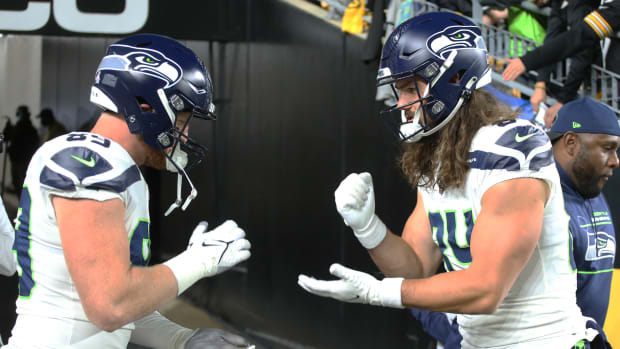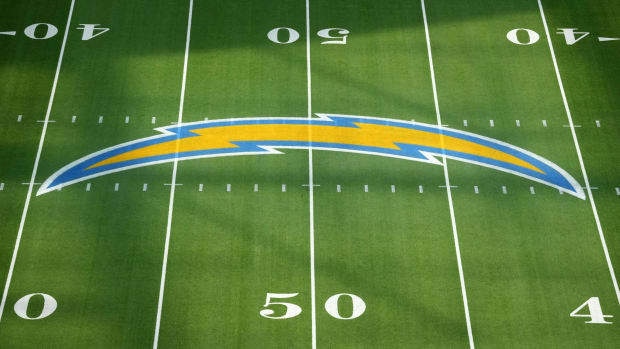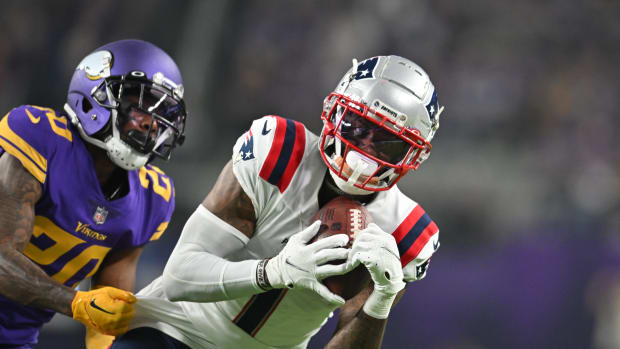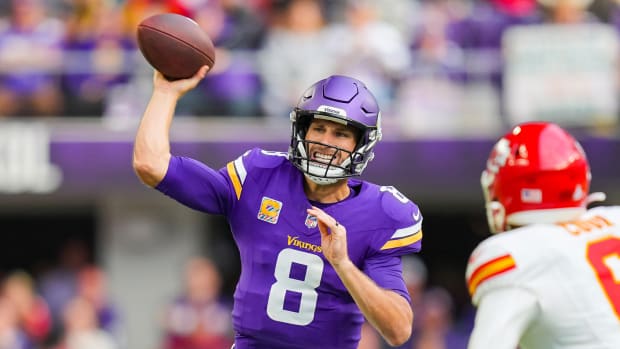The Taxing World of NFL Players’ Finances
Brock Osweiler’s 2016 tax filing was about as simple as you can get for an NFL player: With the Texans he played home games in income-tax-free Texas and paid other states based just on the number of days he spent there. But in 2017, he was traded to Cleveland, cut after the preseason and picked up by the team that drafted him: The Broncos. The Browns still paid his $16 million contract, but it was Denver that used him in seven games. So what did his tax bill come to? The experts say ... they’re not sure.
The move to Ohio, land of the 5.4% income tax—pretty average, as state rates go—hurt the QB’s wallet. Spending a month in Berea for training camp cost him roughly $150,000. But even though the Browns continued to pay almost all of Osweiler’s salary, the Buckeye State can’t tax Osweiler for time spent elsewhere. (As Ohio Department of Taxation lawyer Matthew Dodovich said in a four-paragraph explanation: “Ohio does not get to tax more of the income simply because it is paid by an Ohio source; the key to taxation is where the income was actually earned.”) That means that even though Denver paid just $775,000 of Osweiler’s 2017 salary, he still likely owed the state of Colorado roughly $600,000, with another $150,000 owed to the states in which he played: California, Missouri, New York... That is, assuming he maintained Texas residency status throughout his odyssey. Oh, and one CPA suggests that Ohio and Colorado could both claim they deserve that $600,000, forcing an appeal and possible federal court case. The result could depend on whether the Browns paid Osweiler a lump sum before he left Ohio, or if he continued getting weekly payouts.
Even for players who aren't traded or cut, tax regulations can be complex—and costly.
The Cowboys spending part of their training camp in tax-heavy (Oxnard) California rather than Texas, for instance, cost Dez Bryant close to $10,000 per day. Even the Dolphins’ decision to train in Oxnard following Hurricane Irma in September likely cost Ndamukong Suh between $50,000 and $100,000.
Imagine that Blake Bortles’s Jaguars had upset the Patriots in the AFC championship game in January. (Stay with me here. . . .) If they’d then lost in Super Bowl LII, the QB would have collected $102,700 in playoff salary after accounting for the 37% federal tax take. But then he’d also have owed $74,700 to Pennsylvania, Massachusetts and Minnesota.
One All-Pro’s 2016 filing was 400 pages long. He spoke with his tax accountant on a near-daily basis, calling before scheduling a bye-week vacation to income tax-free Florida that saved him $20,000. And this is a guy who has played on the same team his entire career.
Is your head spinning yet? This complexity is all part of the problem, says Jared Walczak, a state tax expert at the Tax Foundation, a D.C. think tank. And every traveling member of a team—from broadcaster to trainer—has to file all of these separate returns.
What makes players’ taxes interesting is the fact that NFLers don’t just pay where they live. They pay where they play and, most notably, where they practice.
The formula is simple: total salary multiplied by days spent in a given state multiplied by that state’s income tax rate, all divided by the number of days in the season. So each for each day Bryant spent in California he owed the state ($13,000,000 x 1 day x 13.3% tax rate / 170-day season).
As for the recent tax reform, the top-line federal rate cut (from 39.6 to 37%) will help players, but The Tax Cuts and Jobs Act limits filers deducting all state tax payments from their federal taxable income. That will hurt players—and teams—in high-tax states like California, Minnesota and New York—we're talking a $500,000 difference for Derek Carr, for example. For lower-tier players with lesser salaries, the bigger downside is the curtailing of itemized deductions, which previously added up to five-digit savings on union dues, training fees, and other costs.
How Trump's New Tax Bill Will Impact Star Athletes
Look at all of this from the state’s side and the numbers grow exponentially. Minnesota, site of Super Bowl LII, took in $137 million from non-resident athletes across the four major sports in 2015. That same year, California collected $58 million from NFL players not on the Raiders, 49ers or Chargers. Only MLB personnel (playing against the five Cali squads) contributed more.
Just how important is this revenue for the states? Important enough that the California Franchise Tax Board, Minnesota’s Income Tax & Withholding Division, and similar organizations in other states each make it part of some employee’s job to closely follow the athletic calendars of leagues like the NFL. (Check that: employees, plural, in some cases. This used to be one person’s responsibility in California, but as the amount that state took in from visiting athletes grew 50% between 2010 and ’15, the task was spread across multiple employees.) “California is incredible,” says Sean Packard, a CPA with the Twitter handle @AthleteTax. “If you’re off a slight bit, they’ll send you a notice.”
That revenue is also important enough that a proposed bill eliminating states’ ability to charge non-resident employees for short stints within their boundaries includes the phrase, “For the purposes of this bill, the term ‘employee’ excludes: professional athletes.” (The bill passed in the House this fall.)
The non-resident athlete tax (290.17 Subd. 2 [a] [2] in the Minnesota tax code) even has a sexy nickname, “the jock tax,” and a star-studded history. Though the practice dates back to the 1960s, states started getting more aggressive in ’91, after California hounded Michael Jordan for the taxes he owed following an NBA Finals victory over the Lakers. The Illinois Department of Revenue subsequently began targeting visiting California athletes in a move dubbed “Michael Jordan’s revenge”... and the Tax Wars were on.
Some players have fought back against the statutes. In 2015, for instance, retired NFLers Jeff Saturday (Colts and Packers) and Hunter Hillenmeyer (Bears) got a Cleveland-specific jock tax ruled unconstitutional. But a larger segment of players simply do their best within the current rules, even as the act of filing taxes has grown increasingly complex.
“It’s a little scary,” one Pro Bowler’s CPA explains, for a player to discuss his tax strategies because it could “open them up to additional state or IRS scrutiny.” Another agent suggests that NFL players are audited at 12 times the national rate. (An IRS official points out that this would be in line with the recent rates for any millionaire, compared to the rate of someone making less than $200,000.) Given the millions upon millions of dollars at stake—and the gray areas engulfing a player’s tax liabilities—silence might actually be golden.
Major League Baseball secured an exemption two decades ago from state taxes for players who spend a month in Arizona for spring training. Auto groups have typically been able to get jock tax-like rules voided for cross-country truckers. (Could you imagine?) But the NFL, to this point, has not seemed interested in that type of advocacy role, or in publicly factoring in the tax implications of Super Bowl, Pro Bowl or training camp locations. Teams often miscount the days spent in each state, several accountants tell SI, or set players’ withholdings too low, starting with signing bonuses for rookies. The NFLPA plays this all fairly hands-off, too, though the organization helped in legal arguments for Saturday and Hillenmeyer. (Here Hillenmeyer says status quo is just fine; he wouldn’t want teams meddling in his finances more than they’re required to.)
Defensive end Dominique Easley would at least like someone inside the Rams’ Thousand Oaks facility to provide tax advice. When he entered the league he says he “didn’t know anything about taxes.” Four years in (he spent seasons one and two in New England), with innumerable tax deductions for his pedicures behind him—they’re considered medical expenses, to prevent turf toe, he explains—he’s starting to pay closer attention to all the little things, which can quickly add up. After the NFL schedule is announced each spring he scans his team’s list with an eye on how many trips he’ll be taking to tax-free states. (In 2017: four of eight. Not too shabby.) Last year he tried to hand down some of the tips he’s learned to rookie tight end Gerald Everett, but Easley admits that both players are outliers in their attention to detail.
There’s less locker room chatter about taxes than there used to be, estimates Tim Johnson (@cpa4athletes), a 12-year sports accounting veteran. Whether that’s due to a greater respect for the nuances of tax codes, or out of some fear created by the drum beat of news stories about too-good-to-be-true agent scams, players mainly stick to their experts’ advice.
Easley says he learned everything he knows in this realm from his accountant, Jarrett Perry, who frequently gets texts of gratitude from his clients. He gets plenty more messages filled with questions. The NFL season may be long over, but for the CPAs to the stars, this is primetime.




































